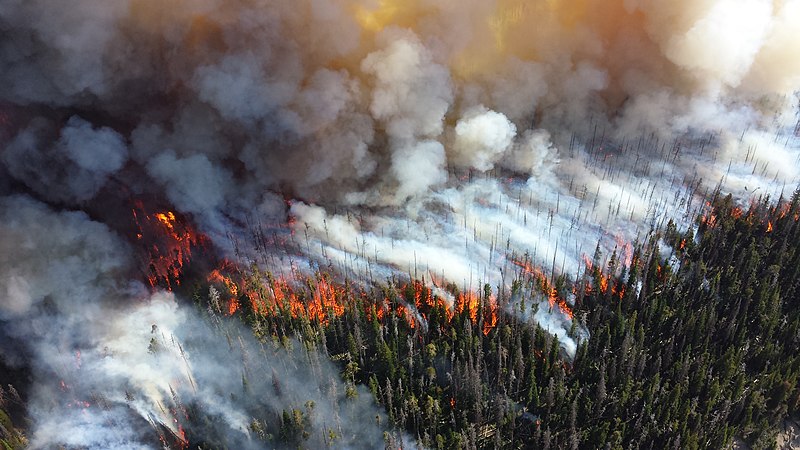
The drifting haze from relentless Canadian wildfires is causing poor air quality, and experts predict that it could persist for days or even weeks, affecting Americans across various regions.
New Yorkers experienced the worst urban air quality globally on Thursday, while hundreds of outdoor spaces from Canada to North Carolina remained empty due to unhealthy to hazardous air quality readings. The National Weather Service meteorologist Bryan Ramsey stated that the low-pressure system over Maine and Nova Scotia, which has contributed to the spread of ashen air, is likely to linger for the next few days.
Ramsey explained that the air quality will remain unhealthy until the wind direction changes or the fires are extinguished, but with the large and ongoing nature of the fires, they are expected to continue for weeks. The silver lining, according to AccuWeather, is that parts of the Northeast may see modest improvements in air quality during the day on Thursday. However, significant improvements in some locations might only occur by Friday or Friday night. Unfortunately, AccuWeather also warned that dense smoke may shift westward toward Pittsburgh, Cleveland, and Detroit.
Key developments include New York City topping the global list of air quality deterioration on the iqair.com monitoring website, with Detroit ranking as high as third. New York City public schools announced that Friday would be a remote-instruction day for over a million students. "Code Red" alerts were extended in several places across the Northeast, urging residents to stay indoors and limit outdoor activities for a third consecutive day. Low visibility from the haze prompted temporary "ground stops" at New York's LaGuardia Airport and Philadelphia International Airport.
The health implications of wildfire smoke are a major concern. Health experts are advising individuals in areas with air quality warnings to stay indoors and utilize air filtration systems to minimize exposure. The Centers for Disease Control and Prevention warns that wildfire smoke, composed of gases and fine particles, can cause harm in multiple ways. While older adults, pregnant women, young children, and those with chronic heart and respiratory conditions are at higher risk, even healthy adults may experience symptoms such as coughing, breathing difficulties, eye irritation, throat discomfort, runny nose, chest pain, headaches, asthma attacks, fatigue, and rapid heartbeat. The American Lung Association emphasizes that wildfire smoke can be extremely detrimental to lung health.
As the smoke lingers, pet owners are advised to monitor their pets' health and minimize their outdoor exposure. Certain dog breeds, such as bulldogs, Boston terriers, and Cavalier King Charles spaniels, as well as pet birds and horses, are particularly susceptible to respiratory issues caused by poor air quality.
The impact of the ongoing wildfires and the associated smoke on air quality and public health continues to be a pressing concern, requiring individuals to take precautions and stay informed. Photo by Photo by Mike Lewelling, National Park Service, Wikimedia commons.











































